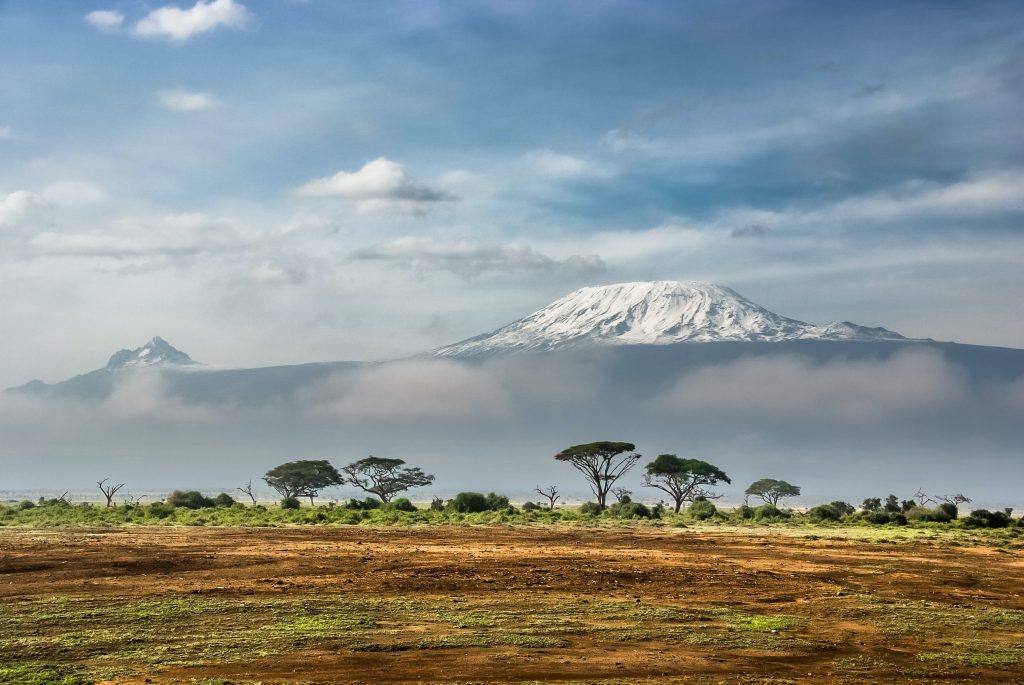December 17, 2020
Property rights, data, and prosperity in Africa
One of the biggest obstacles to wealth creation and greater economic prosperity in Africa has to do with land ownership. Overcoming this obstacle will require better data collection, aggregation, and transparency.
Africa’s colonial history impacts present land ownership challenges
In the United States and much of the developed Western world, land ownership is facilitated through a freehold system, where ownership is by individuals and of an indefinite duration. In Africa, however, two factors have influenced the evolution of property rights outside of freehold systems. First, in the past, some communities in Africa did not think of land as something to be owned by an individual, but rather by the community for the benefit of the community. This tradition effectively prevented the emergence of personal property rights in the late 1800’s and early 1900’s, as it fundamentally conflicted with existing African cultural norms. Second, legacies of colonialism prevented large scale freehold systems for indigenous peoples and instead generally permitted only “customary” systems, where land could be used but not owned. In British colonies like South Africa, Rhodesia, and Kenya, for example, land and real property ownership was reserved for the colonists and their favored businesses and entities, while indigenous populations in general followed a customary system.
As a result, the land within many African countries today falls under different systems of property ownership. For example, estimates of the type of ownership present in specific sub-Saharan African countries range from an estimated 3 percent freehold in Mozambique and Zambia to 44 percent freehold in Namibia and 72 percent freehold in South Africa, with the remainder of land held under customary or state ownership.
This lack of a widespread freehold system has led to a lack of formal documentation regarding land ownership. Only 10 percent of rural land in Africa is formally documented, and only 4 percent of countries have documented the land in their respective capital cities. If land is not surveyed and plotted, then ownership cannot be assigned. The data needed to prove ownership, therefore, simply does not exist in many places.
If many Africans are unable to prove that they own the land on which they live, they lose a valuable source of personal wealth. Without the ability to claim ownership, people within a customary system are unable to participate in any capital appreciation of the land on which they live. They also cannot sell the land and retain any proceeds, nor can they mortgage it to generate money for other business ventures that would create economic growth.
Establishing clear ownership of property has other positive development impacts beyond those reaped by the landowners themselves. First, foreign investors gain confidence in any transaction that involves real property or real estate when they know that there is clear and transparent ownership of the property. Second, corruption in land and property ownership is curbed because it becomes harder to use gifts or bribes of undocumented land in return for political or business favors or to sell land more than once. Third, governments gain a framework through which property taxes can be collected to fund essential government services.

Applications of data collection to land policy frameworks
If the most effective way to boost African wealth creation is through a “freehold-like” system of land rights supported by robust documentation, there are many paths to create such a system. However, regardless of the specific path chosen, all require better data collection, aggregation, and transparency.
First, initial “registration” or mapping initiatives must be conducted to establish a baseline of land ownership data. This crucial first step is the most important, and many such initiatives are already underway. For example, the World Bank has identified land ownership and rights as a key part of its Sustainable Development Goals. They have focused on helping countries “title, survey, and register land…and develop digital land administrative services” in places including Mozambique and Tanzania. The United Nations Economic Commission for Africa has established a land policy framework to help African countries conduct registration initiatives. The African Development Bank has published comprehensive reports regarding “rethinking land reform in Africa.”
While there is no shortage of creative and actionable ideas, data-centric considerations to ensure that any particular initiative will ultimately produce actionable data are lacking. Initiatives toward the establishment of a data taxonomy and legal framework to carry out registration initiatives should leverage partnerships between civil society groups, the local judiciary, and non-partisan legal advocacy groups. Central governments should then enforce the agreed upon data and legal standards, and the private sector should be incentivized to conduct the registration initiatives. This “centralized control but decentralized execution” public-private approach creates an umbrella of standardization through the government’s oversight but preserves the flexibility and speed of implementation through the private sector’s on-the-ground experience. For example, a company called Suyo focuses on helping families document and prove property ownership in Latin America, and the data produced is given to the government to enable it to better provide basic services. For complex legal issues that may impact data collection, elected “adjudication panels” should be created as the final arbiters of ownership issues, including handling changes of control due to civil war or crimes against humanity, as well as resolving issues caused by existing customary systems. Significant time spent on developing the right data framework, and the legal framework to support it, will help avoid the dreaded “garbage in, garbage out” effect and will lay the foundation for the remaining key steps.

Second, after baseline property data has been recorded, widespread use and timely updates of property records and databases should be mandated to create confidence in their effectiveness. Without rigorous updating, any initial “mapping” initiative will quickly become ineffective, even those involving distributed ledger technologies. Local legal systems must evolve to account for the existence and use of property records and enforce their routine usage and maintenance. Flexibility will also need to be built into any data taxonomy to allow for additional functionality as the practice matures. A cultural norm supporting the universal use of property records is the ultimate goal.
Last, governments should consider the establishment of blockchain-based ledgers to decentralize, strengthen, and legitimize land title registries. Decentralized ledgers can provide a defense against corruption by providing transparency that other digital registration tools are unlikely to match. Governments would provide the initial investments for the establishment of necessary infrastructure and to show the government’s commitment to transparency. Beyond that, the blockchain should be out of government control.
A few countries have already sponsored projects experimenting with blockchain technology, including Ghana, Georgia, Sweden, and Honduras.In Ghana, one of the major innovation initiatives noted by the government for the 2020 financial year is “land digitization with blockchain technology” because “disputes on land ownership are prevalent and discourage investments due to multiple sales, poor record keeping, and missing records despite all the efforts (time and money) [sic] at land reforms.” As of 2018 in Georgia, a total of 1.5 million land titles had been put on a blockchain, significantly improving the efficiency of land titling and promoting increased public trust. The project in Honduras, however, failed for seemingly political reasons as domestic political priorities and corruption supplanted the initiative.
Implementation will be difficult, so international NGOs like the UN should consider developing custom implementation “teams” with the requisite funding to help governments implement blockchain solutions alongside private sector partners. Startups, including Bitland and BenBen in Ghana, Land Layby in Kenya, and HouseAfrica in Nigeria have already focused on using blockchain technology in their respective countries to formalize land registries. These private sector players will be key to implementing quick, efficient, and data-conscious solutions.
Using technology as a force for good
A fully functioning and integrated blockchain solution is one of many possible remedies to address property ownership shortcomings in support of wealth generation in Africa. Ultimately, many countries may decide that a hybrid approach to property ownership suits their citizens the best. But, for the ones that don’t, the nearly immediate increase in wealth from personal land ownership would go a long way toward increasing standards of living in the world’s fastest growing continent.
Success will ultimately lie in how data is collected, aggregated, and used. Clean data that forms a single source of truth, a culture built around efficient data collection and reconciliation, and confidence gained through transparency will be the key to success.
Innovative uses of data and technology have lifted standards of living throughout the developed world. Let’s hope that these innovative forces can do the same for Africa too.
